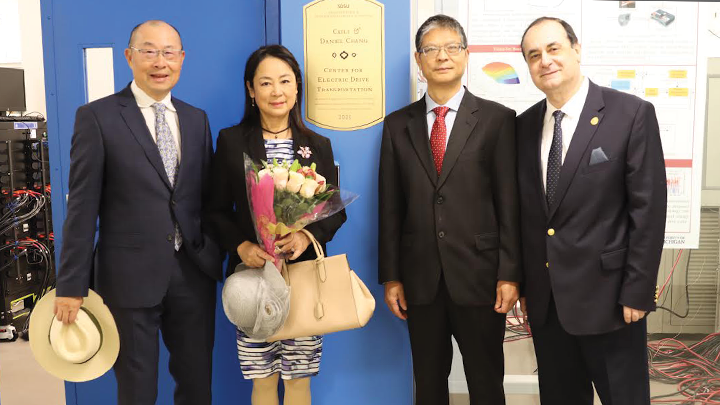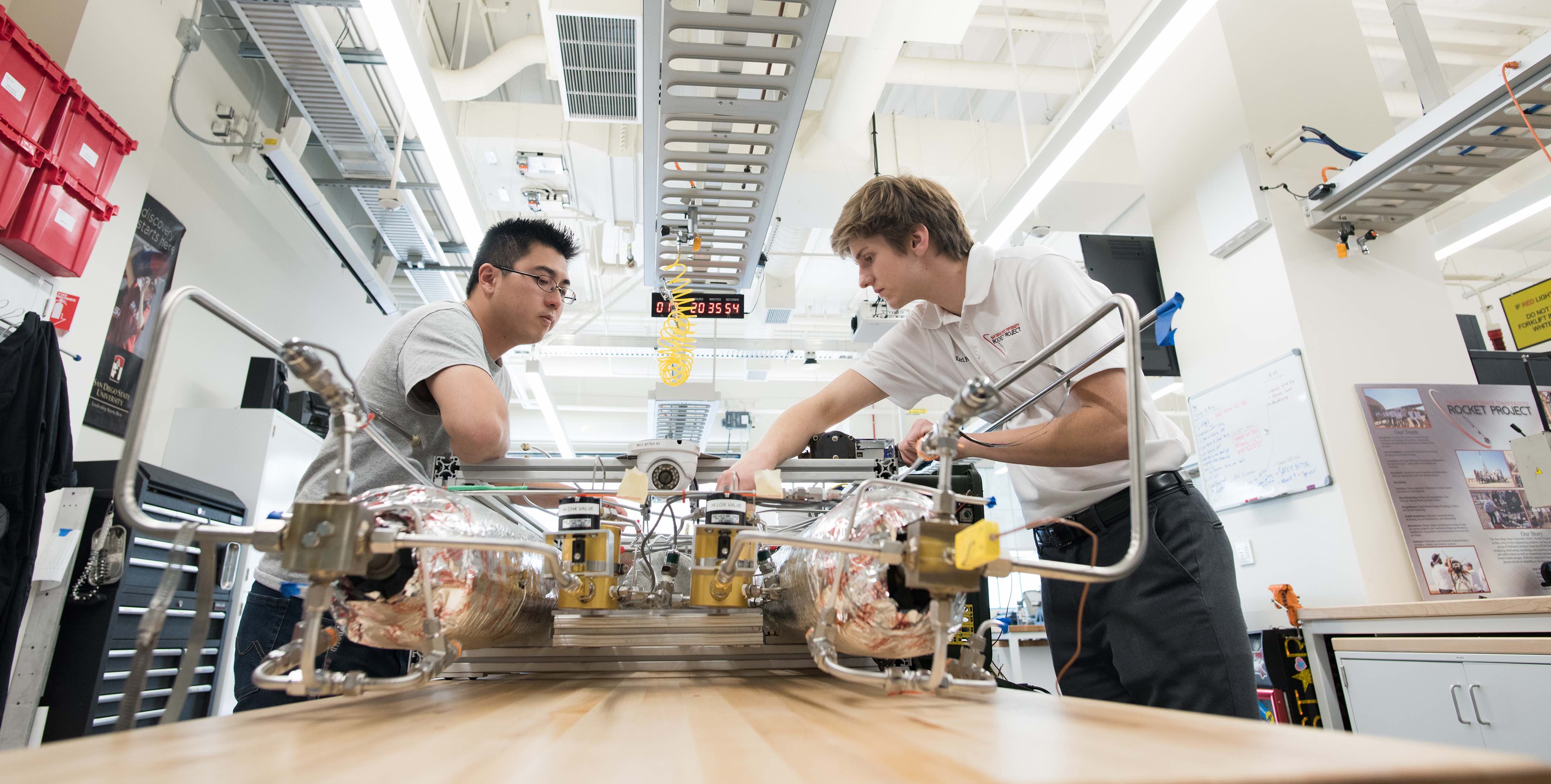Daniel and Cai Li Chang are fueling SDSU’s innovation in transportation

Pizza delivery, newspaper delivery, motel manager, busser, janitor, sewing factory worker.
Daniel and Cai Li Chang had 15 jobs between them in their first two and a half years in Los Angeles after immigrating from China in 1981 with barely enough to live on for even a few days.
“Everything we could do, we just (did) it,” Cai Li Chang said.
But Daniel Chang, determined to pursue opportunities shut off to the couple under Mao Zedong’s Cultural Revolution, snagged a scholarship to continue his education in engineering. It was a first step toward an entrepreneurial career that launched a Sorrento Mesa technology manufacturing company with “American” as part of its very name.
It’s now a global business whose success is supporting advances in energy-efficient transportation in San Diego State University’s Electrical and Computer Engineering department.
A major gift to the Cai Li and Daniel Haiming Chang Center for Electric Drive Transportation will support research and development in electric and hybrid automotive technologies. Led by Distinguished Professor Chris Mi, the center was renamed in a Dec. 11 ceremony.
With multiple competing requests for their support, the Changs said they were drawn by the global importance of the work in Mi’s lab for the future of humanity.
“We cannot depend on oil,” Daniel Chang said in an interview this month. “We need to get energy (from) everywhere.”
“It was partly because of the technology itself” and the breakthroughs it could portend, Cai Li Chang added. “But also, leadership is one of the most important evaluations in our donation process. Dr. Mi ― his passion, his vision and his leadership ― are very impressive to us. That’s why we chose this project to support.”
The support comes after 36 years of business in San Diego, where Daniel Chang founded AEM, Inc. (American Electronic Materials), now engaged in the manufacturing of micro-fuses, chips and other electronic components from a canyonside plant along Cobra Way in Sorrento Mesa.
Evolving from Chang’s original one-man consulting business at a 1,000-square-foot office in Sorrento Valley in 1988, the firm now employs nearly 600 people worldwide, having expanded to facilities in Boston, New York and Suzhou, China. It holds dozens of patents.
The company was sold in 2021 to Industrial Growth Partners; the Changs retired from operation. Daniel Chang remained as the chairman of the board of directors.
It’s a striking example of the first-gen immigrant experience, especially considering how rare it was in the early 1980s for students from China ― Daniel Chang had already earned a master’s degree in ceramic engineering from the South China University of Technology ― to be admitted to the U.S.
His studies led to jobs as a scientist at the Dutch multinational company Philips and then at the San Diego U.S. headquarters of Kyocera, a semiconductor company.
But the Changs decided they needed their own company to escape, as Cai Li puts it, the “corporate politics” of large corporations and to “fully utilize our energy and the ideas and the entrepreneurship that has been laid.”
AEM products are now used in cellphones, televisions, satellites and major brands of EV cars. It was named one of Inc. Magazine’s “America’s Fastest Growing Private Companies” three times in the 1990s, expanded by several acquisitions, and once drew a letter of commendation for its achievements from President Bill Clinton.
In 2015, USC opened the Chang Stem Cell Engineering Facility, established under a gift from the couple.
Daniel Chang said he was drawn to the creativity of the Mi lab’s work on electric drive transportation. He hopes this donation ultimately will help establish the U.S. as “a leader in this area.”
Mi said the Changs’ gift to the SDSU center promises to become impactful.
Among the potential uses, Mi said, are equipment upgrades, support for student researchers who receive stipends during their work in his lab, and travel by faculty and students to industry conferences, particularly overseas.
“It sets an example,” Mi added, noting that the December ceremony drew participants from Airbus, San Diego Gas & Electric and other technology representatives. “They come here because they see this as a wonderful thing, and this will eventually spark their interest (and) we’ll have more support.”

